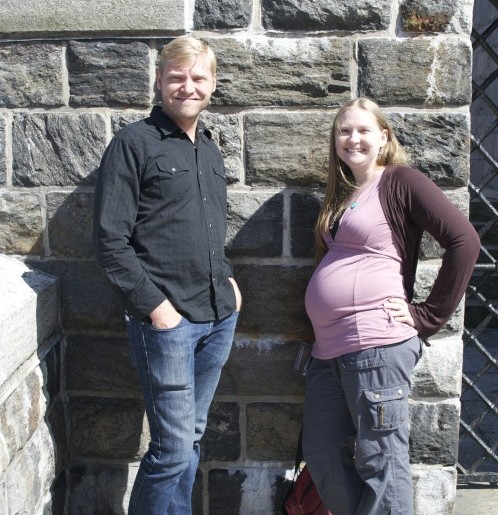Perhaps we should have titled the Ecclesia National Gathering “The No Pants Gospel.”
Kingdom Pants
Scot McKnight is on a tirade right now, trying to get people to slow down and think through what they mean when they say “Kingdom.” He pointed out two, somewhat generational definitions of the word.

For the “Skinny Jeans” crowd, there is “kingdom work” which more or less means doing social justice (ie – Tom’s Shoes, wells in Africa).
For the Pleated Pants crowd there are “kingdom moments” where something miraculous happens (ie – healings, reconciliation, victory over evil systems)
This can be pretty offensive to people giving their life for their definition of the Kingdom. But Scot has a point. Skinny jeans leave the church for their wells. Pleated pants use the church to manufacture experiences.
No Rule Book

McKnight went on to team up with Bill Webb (of Slaves, Women and Homosexuals infamy) to radically reenvision how we read the BIble.
Looking at the “divorce texts” they showed how the gospel writers and Paul each framed Jesus teaching a little differently. They made three points:
- There is no “ultimate ethic” reflected in a single verse of scripture.
- The Bible is full of stories of discernment, applying ethics to culturally bound circumstances.
- You can see incremental movement throughout scripture toward a redemptive ethic, found most clearly in the teachings of Jesus and embodied in the Church.
In other words, the Bible is a great story, but it makes for a lousy rule book.
The No Pants Gospel
Mandy Smith answered the lingering question, “how then do we read the Bible?” Mandy’s answer: “let the Bible read you.”

If the Word of God is sharper than any two-edged sword, piercing bones and marrow, we should treat God’s Word like a surgical tool.
We cannot approach the Bible to justify our personal need to be involved in social justice.
We cannot approach the Bible to justify our personal need for an exciting, life-changing experience.
We must approach the Bible as the Word of God, carrying the authority of God. We must set aside our own agendas and approach it naked of our hopes and dreams.
How do we read the Bible? Only with the expectation that learning to live in the Kingdom where God reigns will hurt.















 Tweets
Tweets